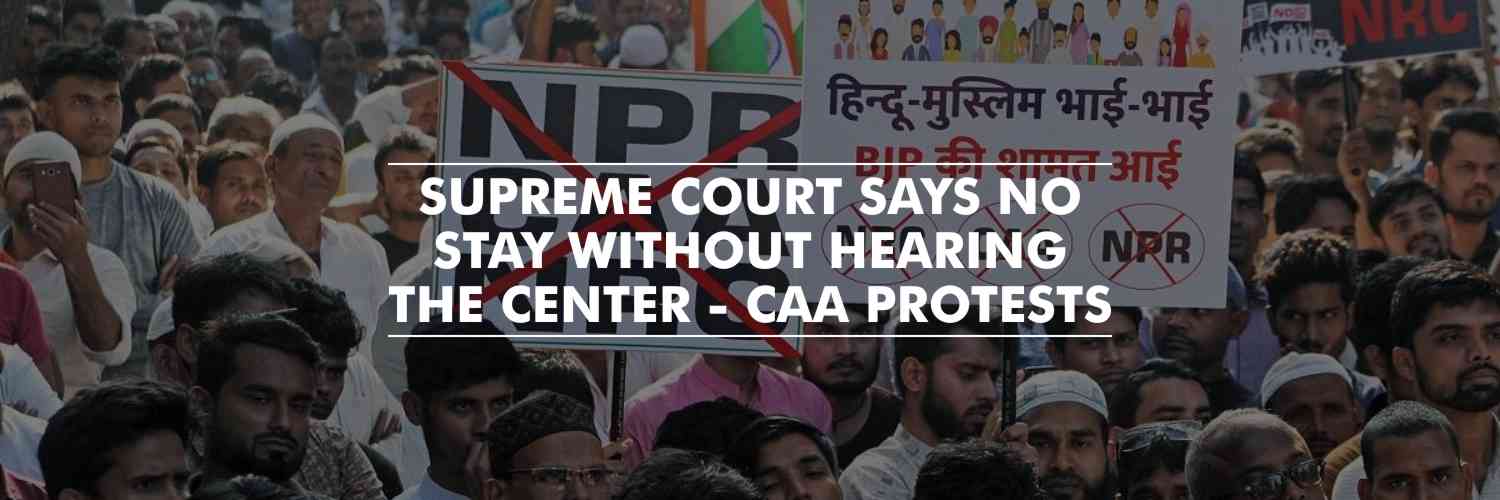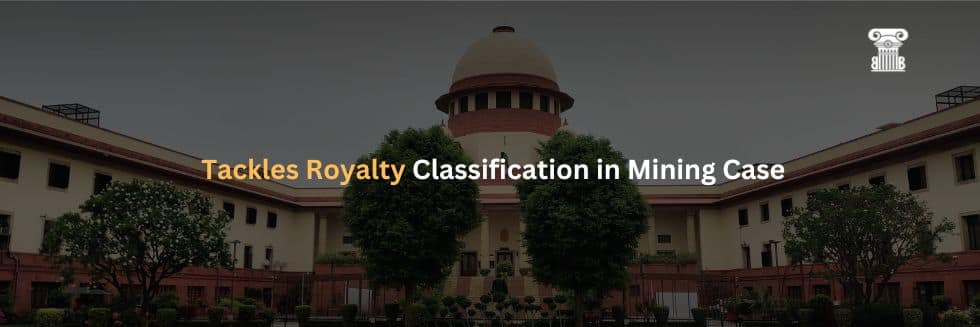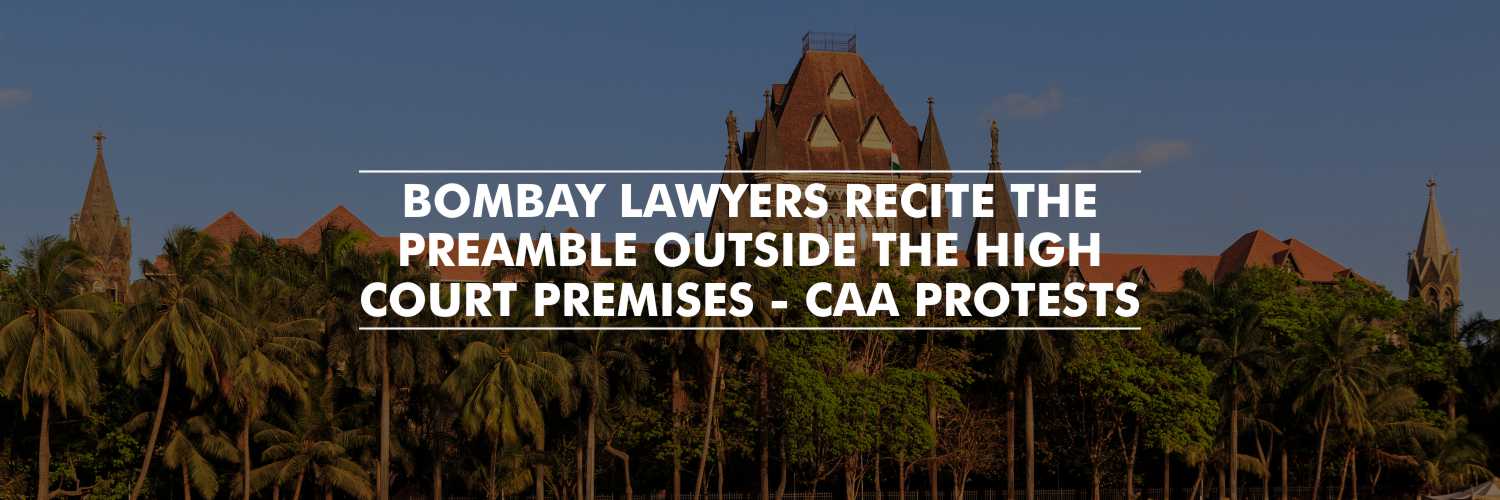The Supreme Court today has issued a notice on all matters, which challenged the validity of the Citizenship Amendment Act (CAA) and granted four weeks to the Centre to respond to the pleas against CAA. The court further stated that it will not grant any stay on the implementation of the amended Citizenship Act, without hearing the Centre.
The bench headed by Chief Justice of India, SA Bobde was hearing the batch of 143 petitions challenging the validity of the Citizenship Amendment Act, 2019 including those filed by the Indian Union Muslim League (IUML) and Congress leader Jairam Ramesh.
Attorney General KK Venugopal, appearing for the Centre, told the bench during the hearing that the Centre has been given copies of only around 60 pleas out of the 143 petitions and further sought time to respond to the pleas which have not been served on it. However, senior advocate Kapil Sibal urged the bench to put a stay on the operation of CAA and postpone the exercise of the National Population Register (NPR) for the time being.
Responding to Sibal, the bench stated that it will not grant any stay on the implementation of CAA without prior to hearing the Centre on the matter and later directed the center to respond to the pleas within 4 weeks. The court further mentioned that it may refer to the pleas which defied the Act, to a larger Constitution bench.
“No ex-parte order can be passed as Centre had no notice on all petitions,” stated the CJI SA Bobde.
The apex court further restrained any High Courts from dealing with the matter.
CAA grants citizenship to the non-Muslim migrants from Pakistan, Bangladesh, and Afghanistan who were expelled on the grounds of religion and had entered India before 31 December 2014. Further, they will not be regarded as illegal migrants as defined under Section 2(1)(b) of the Act. Subsequently, the Act became official on 10 January 2020, despite weeks of protests by thousands of citizens all over the country. The Centre issued a gazette notification announcing the official date of commencement of the Act.
Ever since the Bill of amendment was passed by the Lok Sabha, there has been a widespread protest all over the country from civil servants to actors, eminent personalities, students and various other common people who have voiced their opinion, speaking up against the Act and demanding justice for the violence being perpetrated against protesting people. Starting from New Delhi’s Jamia Millia Islamia University, students protested in universities such as Aligarh Muslim University (AMU), Jawaharlal Nehru University (JNU), Jadavpur University among others against the CAA.
Several petitions were also filed including that of Congress MP Jairam Ramesh and Trinamool Congress MP Mahua Moitra, All Assam Students Union (AASU), Peace Party, NGOs ‘Rihai Manch’ and Citizens Against Hate, advocate M L Sharma, and many other Parliamentarians, activists, NGOs, former Service officers, which challenged the constitutionality of the Act.
The petitioners contended that the Act’s liberalization and fast-tracks grant of citizenship to non-Muslim migrants from Pakistan, Bangladesh, and Afghanistan, promote religion-based discrimination.
“A purely religious classification, devoid of any determining principle, violates the fundamental constitutional value of secularism and Article 14 of the Constitution. The exclusion of Muslims from the Act amounts to unreasonable classification but also violates secularism, which is a basic structure of the Constitution,” stated the petitions.
Few petitioners from Assam argued that the Act violates Assam Accord of 1986 which treated all those who had entered Assam from Bangladesh after 24 March 1971 as illegal migrants. The Accord was entered following years of agitations led by Assam groups demanding the expulsion of illegal migrants from the State. They further allege that the amended Act dilutes the said Assam Accord of 1986.






